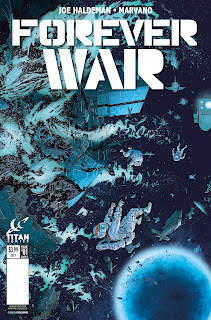Social media runs on memes, and while I try to avoid them for most parts,I thought that I would talk a little about the "10 RPGs That Impacted Your Teen Years" meme that is going around Facebook (and probably other places).
There are a couple of tripping points for that meme for me. The first has to do with my age, there just weren't a lot of RPG options when I was in my teen years. The second had to do with distribution and retail, and this probably had a much greater impact upon what was available for play when I was younger.
I started gaming in 1979, on the cusp of my teen years. While there was an explosion of things going on in gaming at that time, a lot of it passed by small town Indiana because of the quirks of retail.
I've said a number of times that there was a weird geographic quirk to where I lived in that we never had the availability of a lot of modules in the area where I grew up. We had access to plenty of core rules (and by "plenty" I really mean most of the core rules published by
TSR Games), but not much else. Without a local dedicated game or comic store, our game buying was pretty much limited to what was available in the mall:
Waldenbooks and
K.B. Toys. I think that I was in high school when the space that had been the Under 21 "Goth" hangout was bought and turned into a game store. By then things were mostly set, habit-wise.
Most of my teen gaming years revolved mostly around a couple of games:
B/X D&D,
AD&D and later on the classic
Marvel Super-Heroes game from
TSR. The
D&D stuff was with the group that I had played with since starting gaming, while the
Marvel game was what I preferred to run myself. There were other games, on the edges, I ran
Lords of Creation a few times (it was really my introduction to multi-genre gaming), and friends had games like
Gamma World, but while I really enjoyed these other games, they never really grabbed me in the way that the others did.
Just before my family moved to Florida, I found the
DC Heroes game by
Mayfair.
After we moved to Florida, my exposure to gaming increased and I discovered games like
Call of Cthulhu,
Runequest and
Golden Heroes (one of my favorite super-hero role-playing games, a distinctly British game published by
Games Workshop).
Call of Cthulhu became my bomb, and I would use it for pretty much any style of horror role-playing at the time.
I'm not a huge fantasy fan, and
D&D has never had the appeal for me, mostly because of that. It was games like
Marvel Super-Heroes and
Call of Cthulhu that kept me involved with gaming.
In my college years, moving from the teen years and into my twenties, meant that I was able to be exposed to a lot more games. I was lucky between Tampa, and going back to Indiana for college, to have access to a couple of really good gaming stores, and some great comic stores. This is also the era when I discovered that I could order games directly from publishers, and not be bound to the tastes and predilections of local game stores.
The first real discovery of my college years was when
GURPS from
Steve Jackson Games came out. It was like the multi-genre play of
Lords of Creations, but with a much better system. The first edition boxed set was a little rough, but by the third edition of the game it had settled into a pretty solid system.
In 1987, I read William Gibson's
Neuromancer and, as the kids say these days, "mind blown." It took me a couple of years to find the game that meant
CYBERPUNK to me. I went through
Cyberspace from
Iron Crown and
SpaceTime from
BTRC, but neither of them really appealed to me. Then we found
R. Talsorian's
Cyberpunk 2013 and (eventually)
Cyberpunk 2020.
Cyberpunk 2020 is still one of my favorite games, and I
periodically dust it off for new games.
There were always other games, but these were the big ones. The 90s, and my 20s and 30s, were mostly dominated by
GURPS,
Marvel Super-Heroes,
Call of Cthulhu (Thank you
Delta Green) and
Cyberpunk 2020. Most of these still see fairly regular play for me, except for
GURPS. I suspect that I am going to be dusting off
Cyberpunk 2020 more in the future, only because it is weirdly appropriate to the world that we're going to be living in for the next few years.
I have gotten back to
D&D more in the last few years. Third edition saw my entry into professional game writing, like with so many others, but the promise of that edition started to strain under the weight of SO. MANY. OPTIONS. The OSR, and streamlined
D&D rulesets like
Swords & Wizardry and the
Basic Fantasy RPG scratch that itch for me with that style of gaming. The return of
Runequest Classic and clones like the remarkable
OpenQuest also give me variety in my fantasy gaming.
Fate Accelerated has also give me the bones for a gaming system that fits a lot of the needs that I have for how a system works. Like any game, it takes a little tinkering to get the engine really running in the way that you like it, but that is part of the fun of RPGs. Isn't it?










































